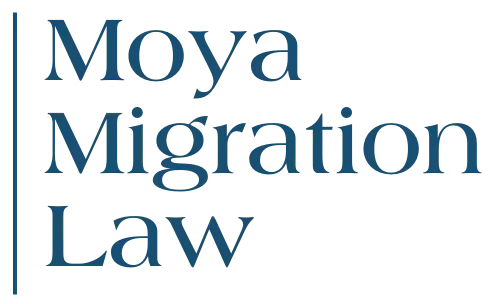Introduction
Receiving a visa refusal decision from the Department of Home Affairs can be a profoundly stressful experience, casting a shadow of uncertainty over your future in Australia. However, this decision is not necessarily the end of the road, as the Australian administrative law system provides a pathway for an independent merits review through the Administrative Review Tribunal (ART), which replaced the Administrative Appeals Tribunal (AAT) in October 2024.
Navigating the ART appeal process presents a critical choice between self-representation and seeking professional legal assistance. This guide provides a comprehensive analysis of why engaging expert immigration lawyers is crucial, exploring their role in the appeal process, dissecting the differences between a migration agent and a lawyer, and demonstrating how legal expertise can significantly influence the outcome of your visa refusal appeal.
Self-Representation vs. Professional Legal Help
The Risks of Self-Representing in an ART Appeal
The temptation to self-represent in an ART appeal, often driven by a desire to save on costs, carries enormous risk. The Australian migration system is an exceptionally complex legal framework, and the ART operates within this intricate environment of laws, regulations, and procedures. Attempting to navigate this process alone places you at a significant disadvantage.
A person without legal training lacks the expertise to challenge a visa refusal effectively. This can lead to critical errors that may be irreversible.
The primary risks include:
| Risk | Description |
|---|---|
| Lack of Legal Knowledge | A layperson cannot be expected to understand the Migration Act 1958 (Cth), the Migration Regulations 1994 (Cth), and the extensive case law governing their interpretation and application. |
| Unfamiliarity with Procedures | The ART has strict procedural rules, evidence requirements, and deadlines. A simple mistake, like missing a time limit, can lead to an appeal’s dismissal without its merits being considered. |
| Inexperience in a Hearing | An ART hearing, while less formal than a court, is still a formal environment. An unrepresented person may not know how to present evidence effectively or respond to a Member’s questions. |
| Emotional Investment | It is nearly impossible to remain objective when one’s future is at stake. This emotional attachment can cloud judgment and hinder the presentation of a clear, logical, and persuasive case. |
Migration Agent vs Immigration Lawyer
Once you seek professional help, it is vital to understand the difference between a registered migration agent and a specialist immigration lawyer. While the terms are often used interchangeably, their qualifications, legal authority, and the protections they offer are vastly different, particularly in the context of an ART appeal.
The most fundamental distinction lies in their training and regulation. An immigration lawyer must complete a multi-year law degree and supervised practical legal training before being admitted to practice. They are regulated by state Law Societies, which enforce strict professional and ethical standards. In contrast, a migration agent typically completes a shorter graduate diploma and is regulated by the Office of the Migration Agents Registration Authority (OMARA).
This difference in training has significant practical implications for your appeal:
| Area of Distinction | Explanation |
|---|---|
| Scope of Legal Advice | A migration agent is restricted to “immigration assistance.” An immigration lawyer can provide holistic advice on intersecting issues, such as criminal or family law matters relevant to the visa appeal. |
| Legal Professional Privilege | Communications with a lawyer for legal advice are protected by privilege, meaning they are confidential. This fundamental protection does not apply to migration agents. |
| Court Representation | A migration agent’s role ends if the ART appeal fails. Only an immigration lawyer can represent a client in a subsequent judicial review appeal to the Federal Circuit and Family Court or the Federal Court. |
Request Your Free 15-Min Consultation
The Lawyer’s Edge In Building A Strong Appeal
Strategic Evidence Preparation & Legal Approach
A migration lawyer brings a critical advantage in preparing your ART appeal by meticulously gathering and organising evidence tailored to the specific reasons for your visa refusal. Unlike self-representation or relying solely on a migration agent, a lawyer conducts a detailed forensic review of the Department of Home Affairs’ decision and identifies the precise legal and factual weaknesses that must be addressed.
This strategic approach involves:
| Strategic Approach | Description |
|---|---|
| Targeted Evidence Collection | Lawyers work with clients to obtain new, compelling evidence (e.g., statutory declarations, expert reports) that directly responds to the specific grounds for the visa refusal. |
| Legal Framework Alignment | Evidence is organised and presented to align with relevant provisions of the Migration Act 1958 (Cth) and regulations, ensuring all legislative criteria are addressed. |
| Comprehensive Case Assessment | A lawyer objectively assesses the prospects of an appeal beforehand, preventing wasted resources and guiding the development of a focused evidentiary strategy. |
| Preparation of Written Submissions | Lawyers draft detailed legal submissions that outline facts, identify errors in the Department’s decision, and apply relevant law and precedents to frame the appeal for the Tribunal Member. |
Persuasive Submissions & Arguing Legal Errors
Written submissions are the cornerstone of a strong ART appeal. A migration lawyer’s expertise in legal argumentation allows them to craft submissions beyond stating dissatisfaction with the visa refusal; they pinpoint specific legal errors and procedural flaws in the Department of Home Affairs’ decision.
Key elements include:
| Advantage | Description |
|---|---|
| Identification of Legal Errors | Lawyers scrutinise the original decision for misapplications of law, procedural unfairness, or failure to consider relevant evidence, forming the basis of the appeal. |
| Structured Legal Argumentation | Submissions systematically dismantle the reasons for refusal by applying statutory provisions and referencing case law, demonstrating why the original decision was legally flawed. |
| Advocacy at Hearings | Lawyers represent clients at hearings, presenting oral arguments, responding to Tribunal questions, and ensuring the case is communicated clearly and persuasively. |
| Protection of Client Interests | Lawyers can request adjournments to confer with clients and safeguard procedural fairness by objecting to irrelevant or unfair questioning from the Tribunal. |
| Continuity into Court Appeals | Only a lawyer can represent the client in judicial review proceedings if the ART appeal is unsuccessful, ensuring a seamless transition and continuation of legal strategy. |
Expert Advocacy & Representation at Your Tribunal Hearing
Navigating the Hearing with Confidence & Clarity
The ART hearing represents a critical, and often final, opportunity to present your case directly to a Tribunal Member. While less formal than a court, this environment maintains a structured proceeding where your evidence and credibility undergo thorough examination. In such a high-pressure situation, the presence of a skilled legal advocate can prove invaluable.
A lawyer’s role begins with meticulous preparation before the hearing day. This preparation includes:
- Explaining the hearing format in detail
- Reviewing all the evidence with you thoroughly
- Conducting practice sessions to anticipate potential questions from the Member
This comprehensive preparation process serves to demystify the experience, build your confidence, and ensure your testimony addresses the key legal issues of your visa refusal clearly and consistently.
During the actual hearing, an immigration lawyer functions as both your advocate and shield. Their critical responsibilities include:
- Presenting the Case: Making concise opening and closing statements that frame your factual and legal arguments persuasively
- Arguing Points of Law: Addressing the Tribunal Member directly on matters of statutory interpretation, relevant policy, and case law to ensure your appeal is discussed at the highest legal level
- Protecting Your Rights: Objecting to irrelevant or unfair lines of questioning—a technical skill that unrepresented applicants typically lack—to maintain procedural fairness
- Managing Difficulties: Requesting brief adjournments when unexpected issues arise, allowing for considered responses rather than panicked ones that could potentially damage your case
The Protection Of Legal Professional Privilege
One of the most significant advantages of engaging an immigration lawyer over a migration agent is the protection of legal professional privilege. This fundamental common law provides proper safeguards for all confidential communications between you and your lawyer made to obtain legal advice.
This privilege is absolute. No entity—whether the Department of Home Affairs, the ART, or a court—can compel your lawyer to disclose what was discussed in confidence. It’s important to note that this crucial protection does not extend to migration agents, whose communications can be subject to disclosure if required by law.
The strategic importance of this protection cannot be overstated. It creates a secure and confidential space where you can be candid with your lawyer about every aspect of your case, including any potential weaknesses. This complete and frank disclosure enables your legal team to build the most robust strategy possible, preparing to mitigate any problems without fear that these private discussions could later be used against you during the appeal process.
Request Your Free 15-Min Consultation
A Lawyer’s Exclusive Role Beyond The ART
Understanding Judicial Review & Jurisdictional Error
The merits review process is considered final if the ART affirms the Department’s decision to refuse or cancel a visa. Right now, there is no more chance to argue the facts of your case or introduce new evidence.
The only remaining pathway is to seek a judicial review of the ART decision in the Federal Circuit and Family Court of Australia or the Federal Court.
Judicial review differs fundamentally from a merits review. The court does not re-examine your circumstances or decide if the “correct and preferable” decision was made. Instead, its role is strictly supervisory, determining whether the Tribunal made a grave legal mistake, known as a “jurisdictional error,” which means it acted outside its legal authority.
Identifying and arguing a jurisdictional error is a highly complex legal task. Examples of such errors include situations where the Tribunal:
- Misunderstood the fundamental legal question that needed to be answered
- Applied the wrong legal test when assessing the evidence
- Incorrectly interpreted a key provision of the Migration Act 1958 (Cth)
- Denied you procedural fairness, for example, by relying on adverse information without giving you a chance to respond
- Failed to consider mandatory evidence or based the decision on something legally irrelevant
- Made a decision that was so unreasonable that no rational decision-maker could have reached it
Why Only a Lawyer Can Represent You in Federal Court
The authority to represent a client in a judicial review proceeding is the exclusive domain of qualified immigration lawyers. A registered migration agent is legally barred from representing clients in:
- The Federal Circuit and Family Court of Australia
- The Federal Court
- The High Court
This distinction becomes critical when challenging an ART decision on a question of law.
Engaging a lawyer from the beginning of the appeal process ensures a seamless transition if a judicial review becomes necessary. The lawyer who handled your ART appeal will already have an intimate knowledge of your case, which is vital given the strict time limits, often 35 days, to file a court application.
If you only used a migration agent, you would be forced to find and brief a new legal representative under immense pressure.
If a court finds a jurisdictional error occurred, it will declare the ART’s decision legally invalid. The court does not grant the visa but will set aside the decision and remit the case back to the ART to be decided again, this time according to the law. This provides a crucial final safety net, accessible only through a qualified legal practitioner.
Cost-Benefit Analysis of Hiring an Immigration Lawyer
Understanding the Fees for an ART Appeal
When considering an appeal to the ART, it is important to understand the costs involved. These expenses are divided into two main categories:
- Government application fees
- Professional fees for legal assistance
Making an informed decision requires a transparent breakdown of these potential expenses.
The government fees for lodging an ART appeal vary depending on the type of visa decision being reviewed:
- Standard Migration Visas: For most visa refusal reviews, including partner, student, or skilled visas, the standard application fee is $3,496.
- Character-Related Decisions: A lower fee of $1,121 applies for reviews of decisions made on character grounds under section 501 of the Migration Act 1958 (Cth).
- Fee Reduction and Refunds: A 50% reduction in the standard fee may be granted in cases of severe financial hardship. Additionally, if your appeal is successful and the decision is set aside or remitted, you will receive a 50% refund of the fee you paid.
Professional fees for representation differ based on the provider’s qualifications and the complexity of your case.
- While a migration agent may charge between $1,000 and $5,000, an experienced immigration lawyer’s fees typically range from $5,000 to $10,000.
This higher fee reflects a more comprehensive level of service, including in-depth legal strategy, the protection of legal professional privilege, and the crucial ability to represent you in court if the appeal process requires it.
The Investment vs. The High Cost of a Failed Appeal
Viewing the cost of hiring an immigration lawyer solely as an expense is shortsighted. A more accurate approach is to see it as a strategic investment weighed against the catastrophic and often irreversible consequences of a failed visa appeal. The actual cost of failure extends far beyond the initial fees.
An unsuccessful appeal carries severe and multifaceted losses that can impact every area of your life:
| Type of Loss | Description of Consequence |
|---|---|
| Direct Financial Losses | Forfeiture of the ART application fee and original visa application costs. A potential court order to pay the government’s legal costs if a judicial review is also unsuccessful. |
| Loss of Legal Status | Cessation of a bridging visa shortly after a failed appeal, requiring departure from Australia and potentially triggering re-entry bans like the Section 48 bar. |
| Detention and Deportation | For those whose visas are cancelled on character grounds or who become unlawful, this can lead to mandatory immigration detention and eventual removal from Australia. |
| Irreversible Personal Losses | The loss of a built life, including career, home, and community connections, as well as painful separation from partners, children, and other family members in Australia. |
Request Your Free 15-Min Consultation
Conclusion
Navigating the ART after a visa refusal is a complex legal journey where the choice of representation is critical; engaging a specialist immigration lawyer provides a decisive advantage through superior legal strategy, the protection of legal professional privilege, and exclusive access to court appeals. The risks of self-representation or relying on a migration agent are immense, often leading to irreversible consequences when your future in Australia is at stake.
Therefore, investing in expert legal assistance is the most effective step to protect your future if facing the ART appeal process. Contact Moya Migration Law today to schedule a consultation and allow our trusted expertise to guide you, ensuring your case is built on a strong legal foundation and giving you the best possible chance of a successful outcome.










